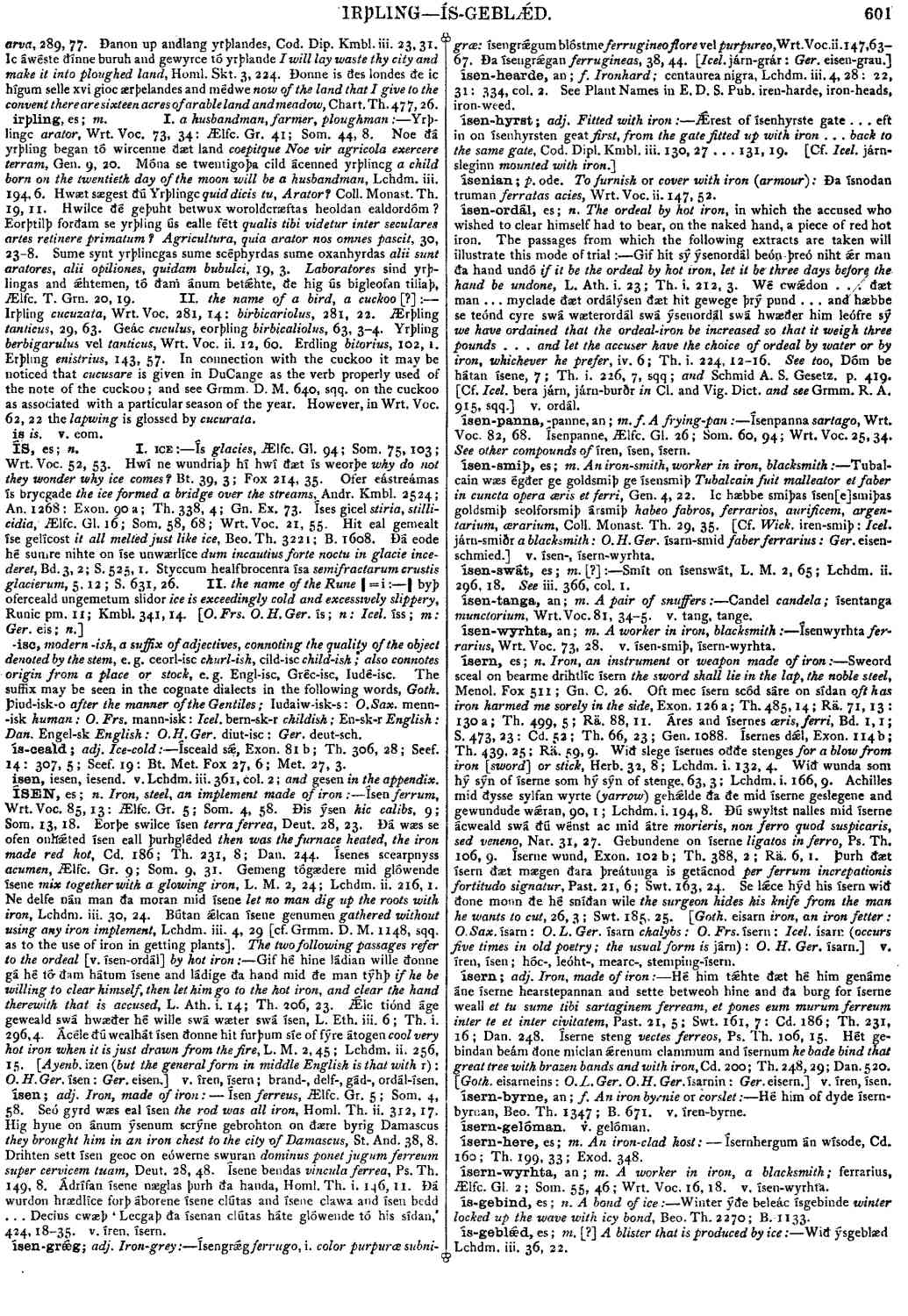irþling
- noun [ masculine ]
-
Yrþlingc
arator,
- Wrt. Voc. 73. 34 :
- Ælfc. Gr. 41 ;
- Som. 44, 8 .
-
Noe ðá yrþling began tó wircenne ðæt land
coepitque Noe vir agricola exercere terram,
- Gen. 9, 20 .
-
Móna se twentigoþa cild ácenned yrplincg
a child born on the twentieth day of the moon will be a husbandman,
- Lchdm. iii. 194, 6.
-
Hwæt sægest ðú Yrþlingc
quid dicis tu, Arator?
- Coll. Monast. Th. 19, 11 .
-
Hwilce ðé geþuht betwux woroldcræftas heoldan ealdordóm? Eorþtilþ forðam se yrþling ús ealle fétt
qualis tibi videtur inter seculares artes retinere primatum? Agricultura, quia arator nos omnes pascit,
- 30, 23-8 .
-
Sume synt yrþlincgas sume scéphyrdas sume oxanhyrdas
alii sunt aratores, alii opiliones, quidam bubulci,
- 19, 3.
-
Laboratores
sind yrþlingas and ǽhtemen, tó ðam ánum betǽhte, ðe hig ús bigleofan tiliaþ,
- Ælfc. T. Grn. 20, 19 .
-
Irþling
cucuzata,
- Wrt. Voc. 281, 14 :
birbicariolus,
- 281, 22 .
-
Ærþling
tanticus,
- 29, 63 .
-
Geác
cuculus,
eorþling
birbicaliolus,
- 63, 3-4.
-
Yrþling
berbigarulus vel tanticus,
- Wrt. Voc. ii. 12, 60 .
-
Erdling
bitorius,
- 102, 1.
-
Erþling
enistrius,
- 143, 57 .
-
In connection with the cuckoo it may be noticed that
cucusare is given in DuCange as the verb properly used of the note of the cuckoo ; and see Grmm. D. M. 640, sqq. on the cuckoo as associated with a particular season of the year. However, in Wrt. Voc. 62, 22 the lapwing is glossed by cucurata.
Bosworth, Joseph. “irþling.” In An Anglo-Saxon Dictionary Online, edited by Thomas Northcote Toller, Christ Sean, and Ondřej Tichy. Prague: Faculty of Arts, Charles University, 2014. https://bosworthtoller.com/20799.
Checked: 1